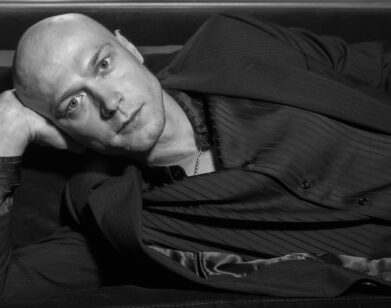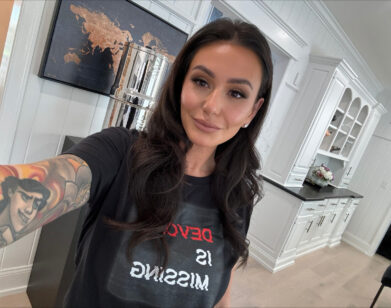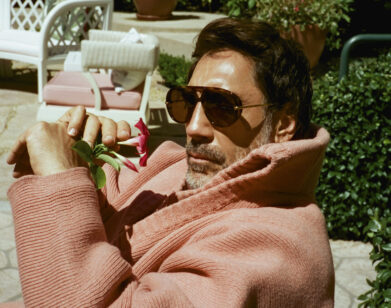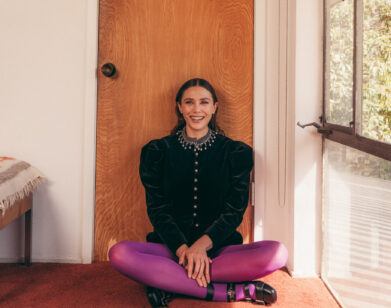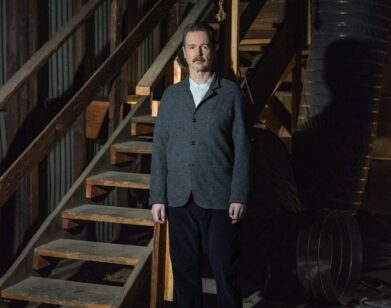Lee Daniels Makes it Personal
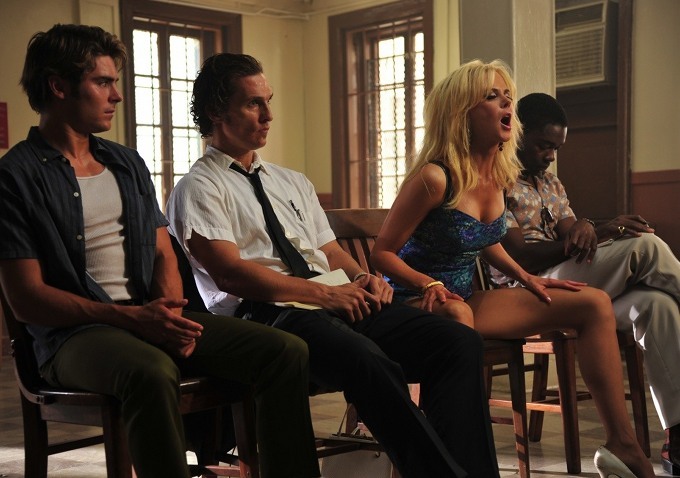
ABOVE: ZAC EFRON, MATTHEW MCCONAUGHEY, NICOLE KIDMAN, AND DAVID OYELOWO IN A SCENE FROM LEE DANIELS’ THE PAPERBOY.
Almost everything Lee Daniels touches turns to controversy, but the early press surrounding his new film The Paperboy is exceptionally vitriolic. Daniels’ highly anticipated follow-up to Precious, The Paperboy premiered at Cannes and immediately created a maelstrom of detest, bafflement, and outright anger. The film has its supporters, to be sure, but the detractors seemed to take delight in slamming the film. The generally even-keeled A.V. Club called the film “The most repugnant and inept movie to inexplicably be treated like high art.”
Why all the fuss? The film, based on a 1995 novel by Pete Dexter, tells the story of a college dropout (Zac Efron), his big-city lawyer brother (Matthew McConaughey), a death-row groupie (Nicole Kidman), and a vile, possibly innocent, death-row inmate (John Cusack). Their lives and lusts intersect, and the resulting pulp melodrama can be viewed as either gritty character study or lurid peepshow. The majority of critics seem to favor the latter.
Regardless of critical perception, Daniels has created a deeply personal film, and his A-list collection of actors (including Macy Gray, whom we wouldn’t be shocked to see earning some supporting award nods as Efron’s feisty maid) shed their inhibitions and glossy images in full support of the material and their uncompromising director.
DREW FORTUNE: The Paperboy seems to be one of the more polarizing movies I can recall in some time. Did you anticipate this kind of reaction, or were you simply telling Pete Dexter’s story the only way you knew how?
LEE DANIELS: Did you read the book?
FORTUNE: I did not.
DANIELS: The book is the book, and the book is the movie. Have you seen the movie?
FORTUNE: I have.
DANIELS: What were your thoughts?
FORTUNE: I enjoyed it. One thing I respect in filmmakers is audacity. I’m a big Larry Clark fan, and I love filmmakers who aren’t afraid of anything.
DANIELS: I think that when you have audacity, you will get polarization. I don’t work with fear, and I don’t work with actors that are fearful. I really didn’t think it was going to be polarizing. I remember the early reaction to Precious was very polarizing, but then they kind of jumped on the bandwagon because you couldn’t make fun of an overweight black girl with HIV that was dying. What we have now are four movie stars. White. Lily-white movie stars, and they are attackable. So, I’m ready for it. But that’s not going to change my view or outlook on filmmaking. I think that I have to tell the truth. 20 or 30 years from now when I’m gone, I know that there will be young kids, or people that are watching this that will appreciate it. But it hurts. It hurts a little bit that it is polarizing and everybody doesn’t get it. It only hurts because of my actors. To go where they went, they had to be fearless, and bear their souls in a way that they hadn’t before. I can take a bullet. I just don’t like it for my actors. I’ve dodged the bullets of the projects. I’ve dodged the HIV bullet. I’ve dodged all sorts of bullets in Hollywood to get my movies made. I’m tough. I’m not tough when it comes to people criticizing the people that I protect, and those are the actors. It makes them scared to do it again for another director.
FORTUNE: And then the actors will reel it in and play it safe for the next few movies because they went out on a limb.
DANIELS: Yeah. So, to answer your question in a nutshell, I really thought that people think like me. The cool people get it. The publications that I read, the directors that I admire and the actors that I want to work with all love it, and that’s all that matters to me.
FORTUNE: In regards to the actors, did you ever think about going the opposite way and getting unknowns?
DANIELS: Yeah, and what, not get the movie made? [laughs] Yeah, of course I did. I don’t think there would be all the hubbub if I did.
FORTUNE: I don’t know if people expect you to be the man with the message, but I think that maybe they find this material easy to attack because it’s pulpy melodrama.
DANIELS: If you really want to get analytical about the work, you can punch holes in any story. When I read the script and the book, I could punch a million holes in the story. But to me, it really wasn’t about the story. It was about the character story, and these fragile human beings. The story was secondary. The study of human nature was first for me. Starting with the Macy Gray character, each character is someone that I know. Gray’s character is indicative of my relatives. It’s an homage to all of my aunts that I grew up with that raised me when they came back from raising white families. I remember watching The Help and thinking, “This is a crock of shit.” My aunts, my sister, my mothers and stepmoms, grandmothers… they had real stories. Macy’s character loved him [Efron]. And he called her a nigger. When he used the nigger word, she loved him so deeply that it didn’t hurt her. She knew that she had to teach him to grow into the world, that someone will cut your little ass open over some shit like that. You have to be careful in the world. It didn’t affect her. Rather, it hurt her for him because she loved him so deeply.
FORTUNE: It was like a parent being disappointed by a child making a bad mistake.
DANIELS: Yes! It had nothing to do with her color. That’s what I was trying to get at with her. She knew all. I got a lot of criticism, and I felt bad about the comment I made at Cannes about Zac’s character where I was eroticizing him. It was stupid of me to say, but I was so angry at the reporter. The reporter said something like “What do you think of Zac and shooting him in his underwear?” And I said “Well, I’m gay, so why not?” I shot back that answer, and I shouldn’t have, because in reality, it was me. I ran around naked all the time growing up. My mom would say, “Put some fucking clothes on! What’s wrong with you, boy?” Subconsciously, it was about my personal experience, and if anything I was trying my best to not make him so beautiful. But no matter how I shot him, he was so freaking good-looking. He wasn’t my first choice to play the character. The first choice was someone who looked like me running around in his underwear. And that wouldn’t have been a pretty sight!
FORTUNE: How much initial convincing did it take to get all the actors on board?
DANIELS: None. None at all. They were all excited about working with the material. The material comes first, and we serve the material. The material is what speaks to everyone. It was just so out there. These characters were so real and surreal at the same time that we were all ready to jump aboard. No one needed to be talked into it. I had several cast changes because in independent cinema these days, to get a movie greenlit, you need stars. Stars make money on real movies. They make big money on real movies. To come into my world, I’ve got some M&Ms and some potato chips, and I’m asking you to move furniture. We’re making a movie. We’re making it like we’re putting on a play. Nicole Kidman put on her own makeup every day.
FORTUNE: I’m curious what Kidman drew upon, and what your direction was for her.
DANIELS: I have friends that I grew up with and a lot of family members that are writing these men in jail, so I had Nicole sit with these girls, and she studied them. That was her prep. I knew she’d want to do it. Actually, I didn’t know she’d want to do it. I didn’t know that she’d want to jump off the cliff with me. I said, “I want some junk in your trunk. I want you to put on ten pounds. I really want you to give me booty and thighs.” And she did. I just told her to eat and not stop eating. She’s model-thin, and just enough trunk made her really voluptuous. And it was fantastic! It was a dream come true. She jumped into the character with fervor and studied the women that she needed to study. She put on her own makeup and got that walk down. She yellowed her teeth and spread her legs.
FORTUNE: The verbal “rape” scene in prison is one of the more uncomfortable scenes I’ve ever seen. It’s amazing that you were able to get all the actors on board for that.
DANIELS: Every one of them, and that’s the trust that they had in the material and the trust that we had in each other. We trusted each other, and that’s hard to get. Trust is hard to get from actors, and for me to give to actors.
FORTUNE: Do you have a dream literary property that you haven’t been able to get your hands on, or a dream film project?
DANIELS: Yeah, I want to go to places that are unexpected of me, because people really think they have me pegged. I want to do something different, like maybe do a space movie or a musical. Maybe a different spin on Cinderella, a modern-day spin on Cinderella for my kids. Something like that, that is more family-oriented. Something that’s unexpected, because you gotta keep ’em guessing.
THE PAPERBOY IS OUT NOW IN LIMITED RELEASE.

